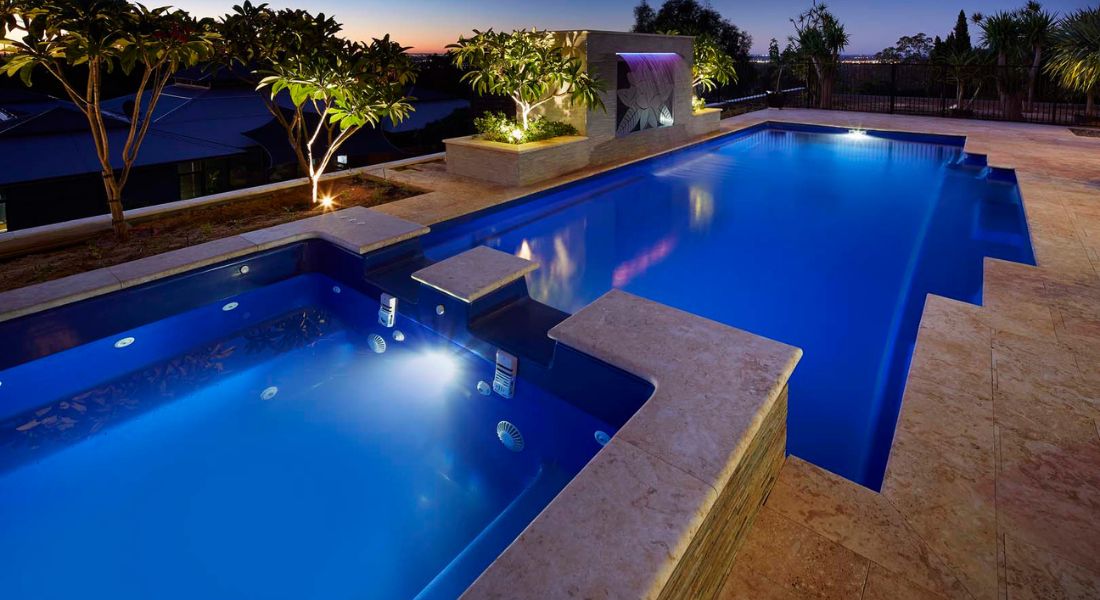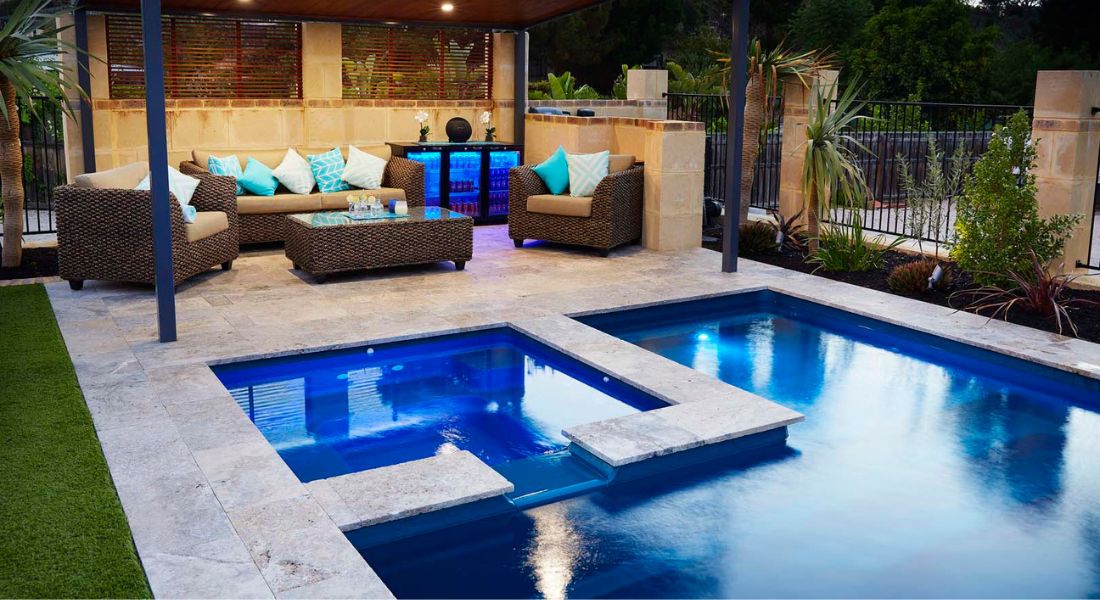
If you're in the market for some new travertine pavers, there are some things you should be asking the supplier first to ensure you are making the best choice. It's important that your travertine is of good quality, it's the right type for the application, and the finish is suited to the project.
Travertine comes in a variety of finishes, including:
If you are laying travertine outside, it will need to have texture to ensure it doesn’t get slippery when wet. Be sure to check that the travertine finish you choose is suitable for the application to ensure it is safe.
If you want to use travertine around a swimming pool, you will need to ensure that you use a water-resistant impregnating sealer that is of high-quality to prevent erosion of the stone. It will also need to have a high-slip rating.
How thick your travertine needs to be is dependent on what it will be used for. For example, if you are installing a walkway, the standard 30mm thickness should suffice, whereas if you intend on using them for a driveway, they need to be thicker to accommodate the heavy weight of vehicles. A minimum of 50mm is recommended for driveways.
Did you know there are varying qualities of travertine? When purchasing travertine pavers it’s important to ask what grade it is. The better quality it is, the more resistant it will be to the elements and the longer it will last. Usually, the more holes the travertine has, the lower quality it is. Premium or A-grade travertine will have fewer holes. You should know that you can get travertine that has been filled and honed to give it a smoother finish with minimal holes. If you are unsure of the quality of the travertine that you are about to buy, be sure to ask the supplier.

The answer to this question is likely yes. Sealing travertine has many benefits, including:
Travertine is naturally very porous and if it is left unsealed, you leave it susceptible to damage from moisture or any other contaminants that happen to spill on it. Over time, these can compromise the integrity of the stone and shorten its lifespan.
The beauty of natural stones such as travertine is that every single piece has unique colour variations and tones. By applying an appropriate sealer you can enhance these further. Sealer comes in many finishes such as matte and high-gloss.
Weeds not only look unattractive, but they can cause issues with the placement of your pavers. As they grow through the gaps, they can shift the pavers out of position and into one another. This can cause them to chip, and if they become uneven, they can become a trip hazard. Sealer adds a protective layer over the pavers and prevents weeds from ruining your paved area.
The idea of having to spend hours each week looking after pavers isn’t appealing to anyone. When you seal your pavers, you can cut back on the maintenance your travertine will require. As stains don’t have a chance to permeate the stone, the amount of cleaning they need is reduced drastically.

The main colour of travertine is ivory/light cream however, it does come in a variety of other shades contrary to popular belief. It can vary from reds and greys to browns and golds. Be sure to ask what colours of travertine they have to ensure you are finding the perfect match for your project.
As mentioned, travertine is porous so without sealer, you may find that it needs to be cleaned often to prevent stains from permanently setting in. If you’ve sealed your travertine with an appropriate sealer, you should only need to give them a sweep and occasionally wash with a hose or pressure cleaner to shift any stuck-on debris. If you haven’t cleaned your pavers in a while and find this isn’t enough to clean your travertine, you can try using a suitable cleaner. Ensure that it is designed for use on travertine and that you follow the instructions as outlined by the manufacturer for best results. This will also ensure that you don’t accidentally damage your pavers from using the wrong technique or product.
Your supplier should be able to give you an idea of how long you can expect your travertine pavers to last given their quality. Be sure to ask, sometimes it’s worth spending a little extra on better quality travertine to get many more years out of them. If you keep up with regular maintenance, ensure spills are cleaned up straight away and seal your pavers with a good quality sealer, you can extend their lifespan greatly.
Sometimes the best way to determine which colour and style of travertine are best is by grabbing a few samples, taking them home and placing them in the location where you want to install them. This can give you a good idea of how they will look in the space.
Some companies will have a minimum order for deliveries so if you only need a small amount, you may have to check with the supplier and pick them up. You should make sure you are fit and able to pick up the pavers if you are going for this option or bring someone with you that can lift them as they can be very heavy.
Travertine is a spectacular paver choice and a favourite amongst the masses. We hope this post has been helpful and given you ideas of questions you can ask your supplier when looking for travertine for your place. If you have any additional questions, reach out to the experts at Bonita Stone.
Contact us today to find out more about our products and services and how we can help you with your paving needs
© 2026 Bonita Stone Paving Products